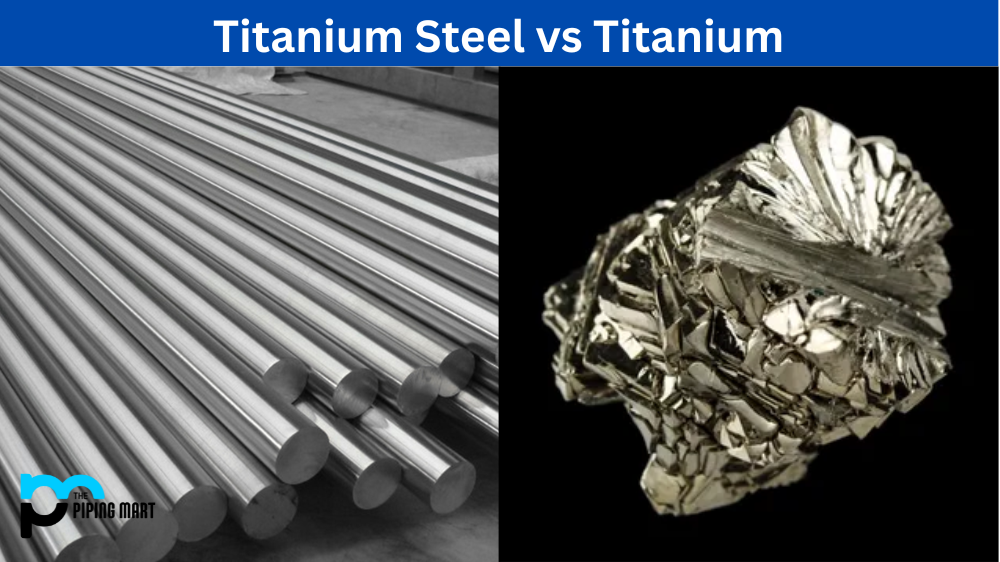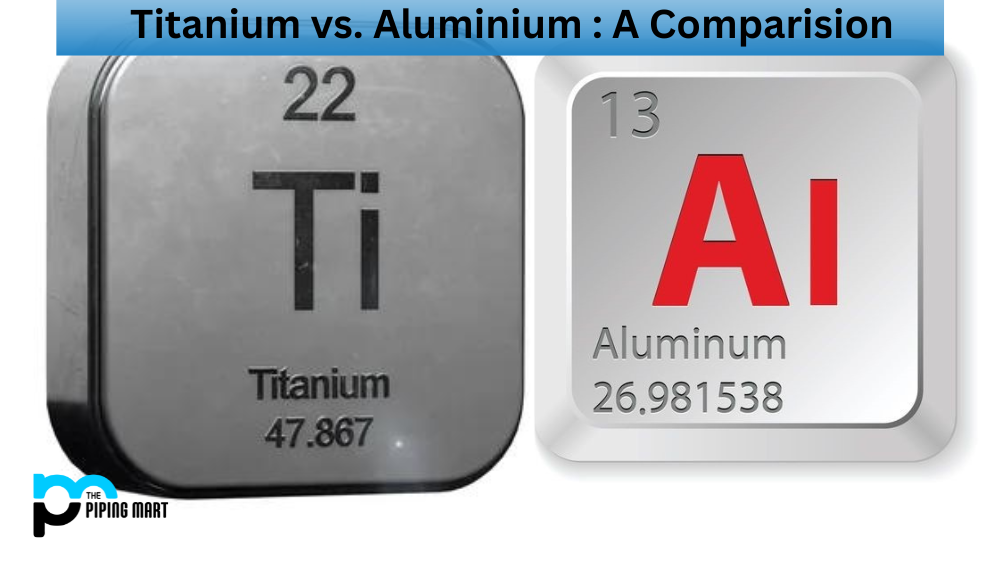Titanium has gained immense popularity in the industrial sector due to its outstanding properties, such as high strength, low density, and excellent corrosion resistance. It is extensively used in various applications ranging from aerospace to medical implants. But have you ever wondered what the difference between titanium steel and titanium is? If yes, you’ve come to the right place. In this blog post, we’ll take a closer look at titanium steel vs titanium and help you understand their key differences and benefits.
What is Titanium Steel?
Titanium steel is an alloy composed of titanium, vanadium, and iron. It’s known for its strength, durability and heat resistance – making it an excellent choice for constructing complex structures such as bridges and buildings. This alloy also has excellent corrosion resistance when exposed to harsh elements like seawater, making it perfect for marine applications.
What is Titanium?
Titanium is a lightweight, strong, corrosion-resistant metal used in many applications today, including medical implants, aerospace components, and consumer products. Its strengths stem from its low density, high tensile strength, and exceptional corrosion resistance, making it an ideal choice for all sorts of applications where weight savings or durability are essential. Additionally, titanium is biocompatible when implanted into the human body, which makes it particularly useful for medical uses.
Differences between Titanium Steel and Titanium
Composition
Titanium steel is a type of alloy that contains iron, carbon, and titanium. It is made by mixing pure titanium with steel in specific ratios. On the other hand, pure titanium is a non-ferrous metal comprising 99.5% pure titanium.
Strength and Hardness
Regarding strength and hardness, titanium steel is usually more robust and complex than pure titanium due to the addition of steel. Titanium steel is commonly used in industrial applications where strength and durability are paramount. On the other hand, pure titanium is relatively softer and more pliable, making it suitable for applications where toughness and flexibility are essential.
Corrosion Resistance
Both titanium steel and pure titanium have excellent corrosion resistance. However, pure titanium is superior to titanium steel due to its pure composition. Pure titanium develops a natural oxide layer on its surface, protecting it from corrosion in harsh environments. Titanium steel, on the other hand, may require additional coatings or protection to prevent decay.
Cost
One of the significant differences between titanium steel and pure titanium is the cost. Titanium steel is generally less expensive than pure titanium due to the addition of steel. On the other hand, pure titanium is more expensive due to its purity and the cost of extracting it from the earth.
Applications
Titanium steel and pure titanium have specific applications based on their properties. Due to its high strength and durability, titanium steel is commonly used in industrial applications such as machinery parts, aerospace, and automotive sectors. Pure titanium is extensively used in medical applications such as implants and dental implants due to its biocompatibility, non-toxicity, and corrosion resistance.
Conclusion:
In conclusion, titanium steel and pure titanium have different properties and benefits, making them suitable for specific applications. Titanium steel is more robust, more complex, and less expensive than pure titanium, making it ideal for industrial applications that require high strength and durability. On the other hand, pure titanium is softer, more pliable, and biocompatible, making it perfect for medical and dental implants. Understanding these critical differences between titanium steel and pure titanium will help businesses and individuals choose the suitable material for their specific application needs.

Meet Bhavesh, a seasoned blogger with a wealth of knowledge and experience. From metal products manufacturing to retail, Bhavesh has a diverse background in various industries and is dedicated to sharing his insights and expertise with readers.




